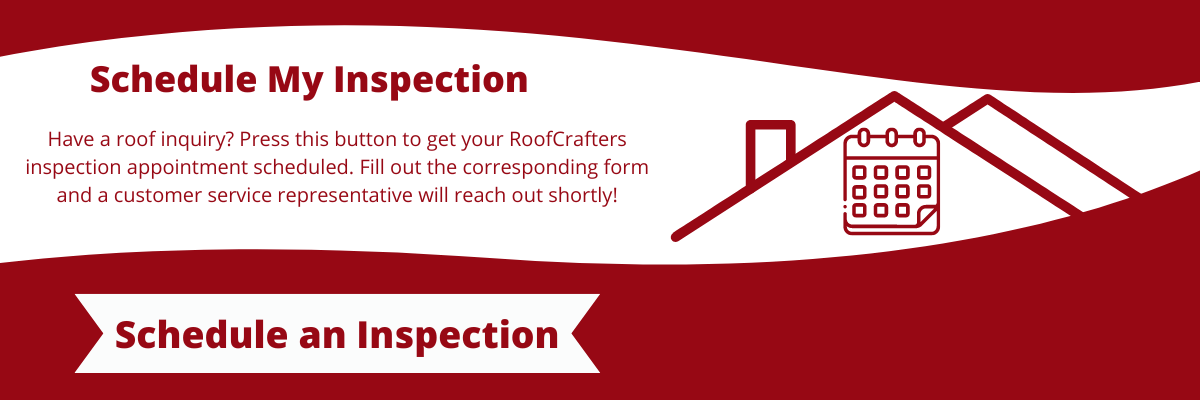The Key Differences Between Residential and Commercial Roofing Systems
April , 2024 | 6 min. read
By Mitch Owens
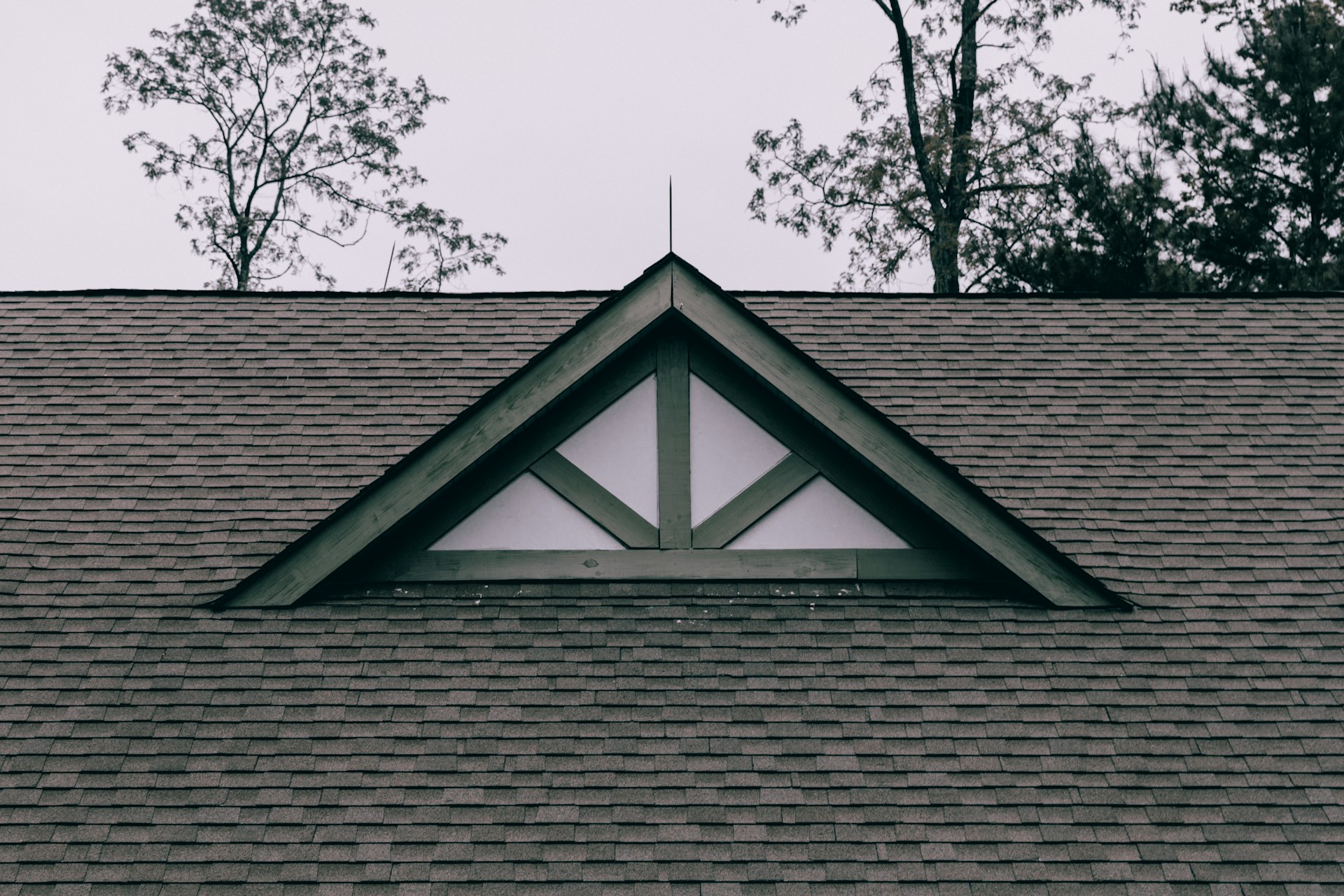
Hey there, reader! Have you ever looked up and wondered what makes the roofs of homes different from commercial buildings? Honestly, probably not, but if you ever have, wonder no more! Today, we're diving into the nitty-gritty of residential versus commercial roofing to uncover the key differences.
Picture this: on one side, you've got cozy neighborhoods with quaint houses sporting their own unique styles of rooftops. On the other side, skyscrapers and bustling business districts with roofs that seem to stretch for miles. What sets these two worlds apart when it comes to keeping the elements at bay?
RoofCrafters has the answer! From materials to design to functionality, there's a whole lot to unpack. So, stick around until the end of this article so you can learn more about the key differences between residential and commercial roofing systems, as well as the most popular materials used in both realms. Let’s get started!
The Key Differences Between Residential and Commercial Roofing Systems
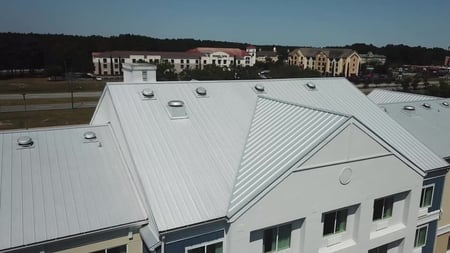
So, you're thinking about roofs, huh? Me, too! Whether you're fixing up your home sweet home or sprucing up your business space, the type of roof you choose makes a big difference. Let's talk about the key differences between residential and commercial roofing systems.
Design and structure: One of the most obvious differences is in the design and structure. Residential roofs are typically more varied in style and materials, ranging from shingles to tiles to metal. They're often pitched for aesthetic appeal. On the flip side, commercial roofs are usually flat or low-sloped for practical reasons, like accommodating HVAC units or providing space for solar panels.
Size: Think big for commercial roofs and small for residential ones. Commercial buildings generally have larger roof areas to cover compared to your home. This means commercial roofing materials are often designed to cover more ground efficiently.
Materials galore: While both residential and commercial roofs have a plethora of materials to choose from, the types commonly used might differ. Residential roofs might lean towards materials like asphalt shingles or cedar shakes for that classic look, while commercial roofs might opt for durable options like EPDM rubber, TPO, or modified bitumen.
Functionality and durability: Commercial roofs are built tough. They need to withstand heavier foot traffic, potential damage from equipment installations, and exposure to the elements over large surface areas. Residential roofs, while still sturdy, don't typically face the same level of wear and tear. They're more focused on protecting the home and adding curb appeal.
Installation and maintenance: Due to their size and complexity, commercial roofs often require specialized installation techniques and ongoing maintenance. Contractors need to consider factors like drainage systems, insulation, and safety measures. Residential roofs, while still requiring professional installation, might be a bit simpler to handle and maintain.
Regulations and codes: Both residential and commercial roofing projects need to meet local building codes and regulations, but the specifics can vary. Commercial buildings may have additional requirements due to their size and occupancy. It's crucial to ensure compliance to avoid any headaches down the road.
So, whether you're covering your home or business, understanding the differences between residential and commercial roofing systems can help you make the right choice. After all, a good roof over your head is key to staying cozy or keeping the business running smoothly!
What Are the Most Popular Types of Residential & Commercial Roofs?
When it comes to residential and commercial roofs, there's a whole menu of options to choose from. Let's break down some of the most popular ones in a casual, easy-to-digest way:
Residential Roofs
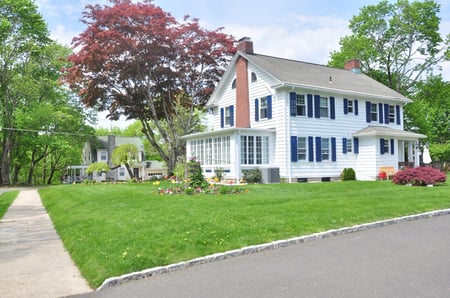
Asphalt shingles: These babies are like the bread and butter of residential roofing. They're affordable, come in a variety of colors, and offer decent durability. Plus, they're pretty easy to install, making them a go-to for many homeowners.
Metal roofing: Picture those sleek, shiny roofs that seem to last forever. That's metal roofing for you! Whether it's steel, aluminum, or copper, metal roofs offer excellent longevity and can withstand some serious weather.
Wood shingles/shakes: If you're after that rustic, natural vibe, wood shingles or shakes might be your jam. They give off major cozy cabin vibes and age gracefully over time, developing a charming weathered look.
Slate tiles: Talk about timeless elegance! Slate tiles are like the luxury car of roofing materials. They're stunning, incredibly durable, and can last for generations. Sure, they might cost a pretty penny, but hey, you get what you pay for, right?
Commercial Roofs
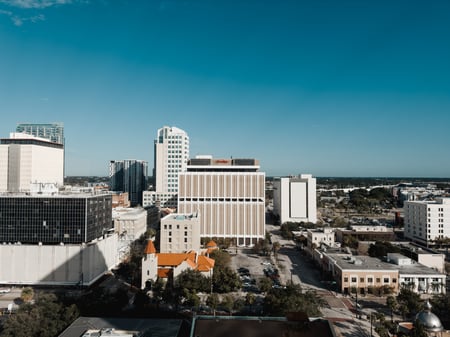
EPDM: When it comes to covering those sprawling commercial buildings, EPDM rubber is a popular choice. It's tough, waterproof, and can handle all sorts of weather conditions without breaking a sweat.
TPO: This one's a bit of a newcomer but gaining popularity, and fast. TPO (thermoplastic polyolefin) roofing is lightweight, energy-efficient, and resistant to UV rays. Plus, it's easy to install, which is always a bonus.
Modified bitumen: Think of modified bitumen as the tough cookie of commercial roofing. It's made with asphalt and reinforced with modifiers to enhance durability. It's great for flat or low-slope roofs and can stand up to some serious foot traffic.
Green roofs: Who said roofs can't be green? Literally! Green roofs, also known as living roofs, are all about adding a splash of nature to urban spaces. They're covered in vegetation, which helps with insulation, and stormwater management, and, well, they look really cool.
So, whether you're decking out your cozy cottage or covering a colossal office complex, there's a roof out there with your name on it. Just pick your style, slap it on, and enjoy the peace of mind that comes with knowing you're covered, literally!
Understanding Residential and Commercial Roofing Differences
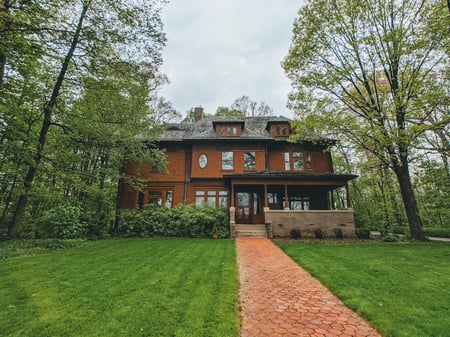
Wrapping things up, it's clear that residential and commercial roofs might both keep the rain out, but they're as different as night and day. From their design and materials to their size and functionality, there's a lot that sets them apart. Residential roofs are all about charm and curb appeal, with options like asphalt shingles, metal, and wood adding character to homes big and small.
On the other hand, commercial roofs mean business, focusing on durability, efficiency, and practicality. Whether it's EPDM rubber, TPO, or a fancy green roof, commercial buildings need tough coverings that can handle whatever the elements throw their way. So, whether you're cozying up under your residential roof or hustling in your commercial space, understanding these key differences can help you make the right choice when it's time to cover your assets.
After all, a good roof is more than just protection from the elements, it's the cherry on top of your home or business, keeping you safe, dry, and looking good while you're at it! If you’re currently looking for a reputable contractor for your home or business, be sure to hit the “Schedule an Inspection” button down below!
My name is Mitch, and I have over 10 years of roofing experience. I enjoy my career in the service industry because I love helping others take care of their homes and businesses. With over 10 years in the roofing industry, my success comes from my honesty and integrity during my roof inspections. I do my best to listen to the needs of my clients and strive to provide an awesome client experience.



